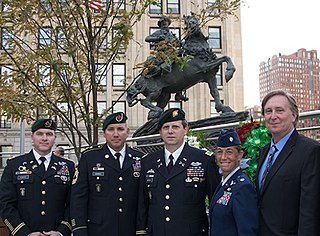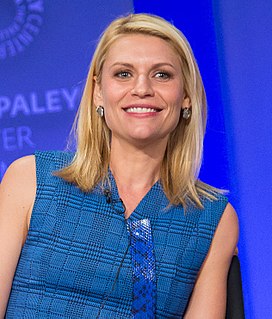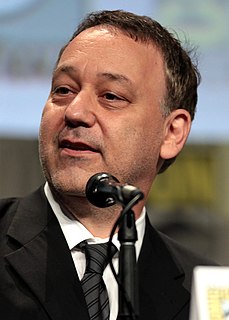A Quote by Doug Stanton
I'm really interested in how people face existential crises and either overcome them or don't, and in how the human psyche responds.
Quote Topics
Related Quotes
I prefer to be part of a positive statement. I'm not interested in the psyche of a serial killer. What I'm interested in is creating a situation in which people get some emotional exercise, which makes them feel like human beings and makes them understand that they are part of the human community with all its responsibilities.
The Gospel writers are not really interested primarily in the facts of the birth but in the significance, the meaning for them of that birth just as the people who love us are not really interested primarily in the facts of our births but in what it meant to them when we were born and how for them the world was never the same again, how their whole lives were changed with new significance.
I'm always interested in how people, myself included, have ideas of themselves, of how they thought they would be, or of how they want to be seen. And the older you get, the world keeps telling you different things about yourself. And how people either adjust to those things and let go of adolescent notions. Or they dig in deeper.
And increasingly - you know this and so do I we're losing the youth everywhere. They hate us; they are not interested in having more fears and guilt laid on them. They're not interested in more sermons and exhortations. But they are interested in learning about love. How can I be happy? How can I live? How can I taste the marvelous things that the mystics speak of?
The Dalai Lama once said that every human being has two fundamental desires: to be happy and free of pain. I'm interested both in helping people and myself achieve these and also, in the process, finding out what our full potential is as human beings. In essence, there's so much unconsciousness about how/what we eat and how we live which creates the problems that people face. I see so many sick and suffering people when I go on my lecture tours and, if I can help someone find their way back to a life worth living, that's a good day's work.
I don't believe in cancer walks. Well, I believe in them because they exist but I'd rather just give money straight up and save my Saturday afternoon. I can make my own t-shirt, that's not incentive. Plus I don't think cancer responds to how far people walk. I don't think cancer's sitting at home, 'What? How many people walked how far? How many people walked how far wearing the same shirt? That's crazy! I'm out of here!' Remission.

































